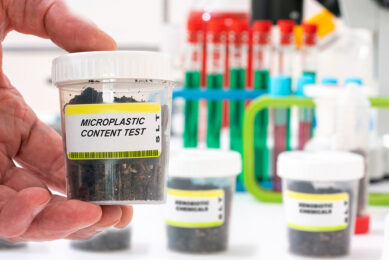Purified lignin potential probiotic
In contrast to native lignin, purified lignin does not represent a barrier to digestion in monogastric or ruminant animals. Several in vitro and in vivo studies have demonstrated antimicrobial properties of the phenolic fragments in purified lignin.
Recently, purified Alcell lignin has been shown to exhibit
prebiotic effects in chickens, favouring growth of beneficial bacteria and
improving the morphological structures of the intestines, as measured by
increased villi height and goblet cell number.
These findings suggest
that purified lignin may exert health benefits in monogastric animals and could
potentially be considered as a natural feed additive.
Few
studies
Based on the few published studies, animal responses to
purified lignin seem dependent on dosage, animal species and type and source of
the lignin product. More research is required before establishing conclusive
benefits of purified lignin on animal performance and health.
Lignin, the
second most abundant natural compound after cellulose, is a high-molecular
weight polymer of phenolic compounds that occurs naturally in plants.
It
is mostly present in the cell wall, conferring structural support,
impermeability and resistance to microbial attack.
Commercial purified
lignin is produced as a by-product of the paper industry, separated from wood by
chemical pulping processes.
These purified lignins are low molecular
weight mono-phenolic fragments that have biological characteristics that differ
from those of native lignin.
Different chemical treatments during
wood-pulping processes yield diverse types of purified lignin, such as Alcell
and Kraft lignin.
Although these phenolic fragments may potentially have important applications
in animal agriculture, research with purified lignin has not received much
attention and there are few published results.
The full research can be
obtained from Elsevier Science
For
regular updates on feed news subscribe here to our free
newsletter












